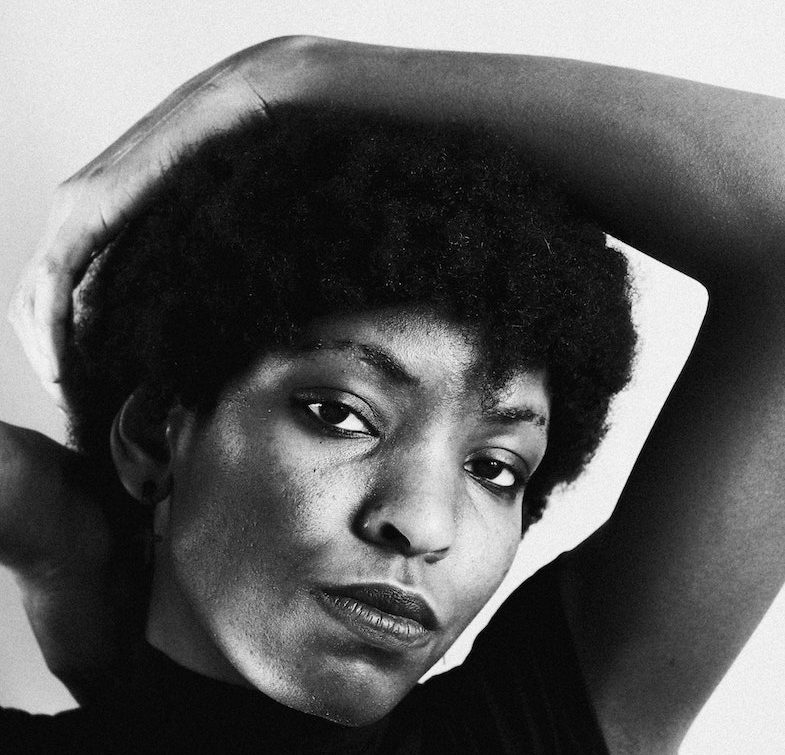Books & Culture
Teddy Wayne Plumbs White Male Privilege

An interview with the author of the incendiary new novel, Loner.

If you’ve enjoyed Teddy Wayne’s prolific output of humor pieces in McSweeney’s and The New Yorker, or if you read his breakout second novel The Love Song of Jonny Valentine — a brilliant first-person account of a Bieber-esque pop star’s life on tour — none of this would prepare you for Loner. In the pitch-black story of Harvard freshman David Federman’s obsession with a female classmate, Wayne plumbs male privilege and status anxiety with disturbing insight. It’s a novel I read in one sitting and then immediately pressed on friends and strangers, if only so I could repeatedly exclaim “Holy shit!” and “That ending, right?”
It’s not a stretch to say the Whiting Award winner’s third novel might become the most incendiary book since Bret Easton Ellis’s American Psycho. Or at least the most subversive graduation gift for the class of 2017. I conducted this exchange with Wayne over email on his brief vacation before the book’s publication.
Chapman: I think of the campus novel as the writer’s equivalent of the pop ballad: everyone thinks they can do it, and yet 99.999% of them are terrible. Walk me through the genesis and composition of Loner. Did the clichés of the campus novel cast a shadow? Did you have any particular examples in mind while writing?
Teddy Wayne: I wrote a bad campus novel when I was 24, so I guess I am the 99.999%. Amateurish craft issues aside, it was the kind of book you’d expect — overly sentimental, semi-autobiographical in all the wrong ways, conventionally coming-of-age. Thankfully, it was never published, and I discovered in part through writing it that I’m better at imagining protagonists who are dissimilar from me, which I did in my next two books. I remained interested in returning to a campus novel, but knew I would have to do it in a subversive, darker way to avoid the problems that had plagued my first effort. The Secret History is an obvious antecedent in that regard. But I was guided more by a few other non-campus works of art: The Talented Mr. Ripley, Lolita, Notes from Underground, and Taxi Driver, especially. If you take the flesh of one genre and hang them on the bones of another, you often get interesting results.
If you take the flesh of one genre and hang them on the bones of another, you often get interesting results.
Chapman: One of the narrator’s more troubling aspects is his relative innocuousness, at least on first impression to both the reader and the other characters. I’ve met several David Federmans. I imagine we all have. It’s tempting to say his pretension and intellect shield his monstrousness — a New Jersey born, 18-year-old Humbert Humbert — there is, equally, the environment of the Ivy League campus, circa now. Harvard’s codes, class system, and culture of enabling (to use a loaded word) is much more present than, say, The Secret History’s lightly drawn Hampden, which felt more like a town-and-gown container for the characters’ movements. What do you think the relationship is between David’s actions and Harvard in 2016?
Teddy Wayne: Those are two separate elements: Harvard, and 2016 (or whatever contemporary year the novel is set in, which is undefined). For the former, David is drawn to Harvard for the same primary reason nearly all its students are: its name. There are other legitimate reasons to go to the school, but its global reputation is what first gets the attention of its aspirants, especially the highly ambitious and status-conscious, which David is. Humbert wants to recreate his lost childhood love and gratify his perverse urges. David wants recognition, he wants to be the best, and he wants to elevate himself beyond his already cushy New Jersey-suburban-professional background and into the rarefied air of Manhattan’s upper crust. Harvard — and Veronica — is his ticket to do so.
As for 2016, if this novel were set when I attended college — the late 1990s and early 2000s — it would be very different. Although that era came at the tail end of the first modern collegiate wave of identity politics, it’s much more powerful and widespread now, and David, as an insecure and entitled young white male, chafes against it. He is threatened by what he sees as the silencing of his own voice, feels he is being persecuted for the sins of his ilk elsewhere, and most of all frustrated that he is not reaping the sexual and social benefits of his privileged status. But, as you pointed out, he seems relatively innocuous at first. It was important not to portray David as an outright monster from the start, or it would render him cartoonish and fail to implicate any readers who might share similar attitudes.
Chapman: To borrow a half-remembered concept from those days, identity politics is a rhizomatic subject, with particular challenges to representation in fiction. Were there different approaches in the earlier drafts that you eventually abandoned? How much did research play a role?
Teddy Wayne: The book became more suffused in identity politics, or at least in David’s simmering-anger response to it, as I revised it. The first draft was a more straightforward exploration of obsession, with class as the main complicating factor (David is from a professional suburban background, but wants entrance to the world of Veronica, who is from the upper echelons of Manhattan.) After I finished it, I realized it was just as steeped in David’s relationship to his masculinity and to current gender politics. Right around this time, Elliot Rodger went on his rampage in Isla Vista and published a disturbing manifesto that was directly about his feelings of masculine inadequacy, and that, too, informed my revisions.
As for research, aside from attending the school a while ago and reading the books and authors that are name-checked in it, I went back to Harvard for an event while I was writing it and spent a night with a group of freshman boys, getting a feel for them socially and asking them questions about their experiences, and hung out with some other current students. I also tried to get into a final club party, to refresh my memory, but they wouldn’t let me in, which felt appropriate.
Chapman: While Kapitoil and The Love Song of Jonny Valentine were also voice-driven narratives, there was an innocence and lightness to them. Was it difficult to stay inside David’s head? I’m imagining cold showers after each writing jag.
Teddy Wayne: Loner can be read in a few hours, so the reader is spared from living in David’s mind for too long. It took me about two and a half years to write, and at times it was reminiscent of the feeling I get when I end up curiously poking around horrible anonymous user comments on the internet or tweets: a fascinated disgust that makes you despair for humanity and makes you flagellate yourself for being curious about it in the first place. David’s thoughts aren’t quite as aggressively noxious as the kind of comments I’m talking about, but he sinks into a nastiness that was sometimes hard to shake off after a writing session.
At times it was reminiscent of the feeling I get when I end up curiously poking around horrible anonymous user comments on the internet or tweets.
Incessant bleakness can make for an unpleasant reading experience, so I tried, too, to make David’s narrative voice funny when possible — Lolita, aside from the lyricism, gets a lot of mileage out of Humbert’s humor that cuts against his misdeeds.
Chapman: Let us never forget “(picnic, lightning)”… We have to tip-toe around the plot, since the ending is a forehead-slapper that makes one want to immediately grab the nearest bystander, form an impromptu book club, and debate/discuss/rend garments. Without giving anything away: how did you come to the confessional mode of address and the larger frame of the novel?
Teddy Wayne: This, again, changed substantially in revision. Initially, it was narrated just in the first person, and then I changed it so David addressed Veronica as “you” throughout. (This is far from the only book about obsession that uses this first-person-addressing-a-second-person voice; it’s a convenient way to magnify the narrator’s voyeuristic sights on his quarry.)
Where David was at the start and end of the novel, at what point in time he was narrating from, and whether this was an interior monologue or written document also changed substantially (as did the events at the end). Originally, he was explicitly narrating from the present, thinking about the past; then he was writing about the past; in its final form, it starts in the present, with early foreshadowing that tells us he is writing this from some period of time later. It adds (I hope) tension without giving away exactly what has happened, and without explaining why David is writing the text that is Loner.
Chapman: I imagine this book will be hotly debated and argued over by plenty of readers, but I wondered if you had anyone specific in mind: undergraduate book clubs? Recent high school grads? Bros about to attend their ten-year reunion?
Teddy Wayne: Who ends up reading is completely out of my hands, but I suppose it would yield some interesting and possibly productive discussion among incoming college freshmen. I suspect Harvard will not be assigning it for this purpose.
Chapman: Let’s hope some insurrectionist alumni airdrop copies during freshman orientation. With three novels under your belt — and dozens, maybe hundreds of published short pieces — I’m curious to hear your 30,000-ft view of The Wayne Oeuvre.
Teddy Wayne: A good portion of those short pieces are not written to be Profound Timeless Art but more to Pay the Monthly Rent, so let’s remove those from consideration. The three novels, now that they’re all finished, all feature outsiders who enter some high-stakes late-capitalist arena (Wall Street, music industry, Harvard) trying to make their mark and simultaneously forge intimate relationships, and the ongoing question is whether they’ll be able to retain their souls under such duress. The (more serious) journalism is usually concerned with whether we’re losing touch with our humanity because of technological shifts. The (sharper) humor pieces typically take aim at some fundamental hypocrisy or absurdity in the culture. So I suppose what interests me in all my writing is some combination of the topical, via cultural critique, and the universal challenge of human connection.









